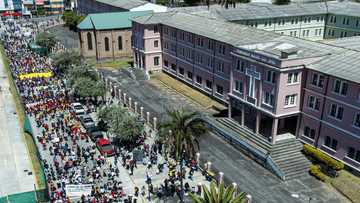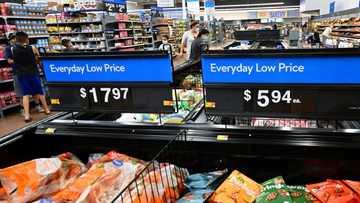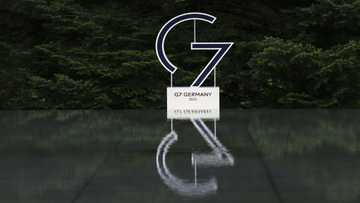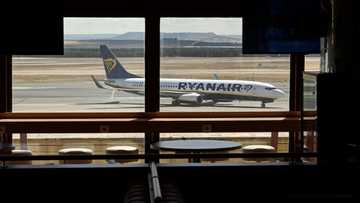Russia-Ukraine War: Economic Effects Hit Ghanaians Hard, But Scepticism Dominates Public Opinion
The UN and other international organisations are united in their analysis that the disruptions caused by the Russian-Ukraine war were pounding economies across the globe. But in Ghana, public opinion about the extent of the effect of the military conflict is dominated by scepticism. YEN.com.gh sampled the views of ordinary citizens on the war for this report.
New feature: Check out news exactly for YOU ➡️ find “Recommended for you” block and enjoy!
Since March 2022, the government of Ghana has not missed an opportunity to remind citizens that the Russia-Ukraine War was decimating the economy. Food inflation, high cost of fuel, and depreciating cedi, the key drivers of hardship in the country, have all been linked to the war. Before the war, however, Ghana like many countries in Africa, was reeling under the weight of hardships caused by the global pandemic. In fact, by March 10, the World Bank said Ghana was at high risk of debt distress.

Source: AFP
The effects of the war have been trumpeted quite loudly by the government. But before that, allegations of mismanagement of Covid-19 funds, and opulence at the presidency, among others, dealt a heavy blow to public confidence in the Nana Akufo-Addo administration to restore the economy to its glory days. Hence, the government's reference to the recent war has not absolved it from fierce public criticism for the current economic situation.
Opinion about the war on prices of goods
Solomon Frimpong is a 35-year-old food vendor. He jointly runs an eatery with his elder sister, Matilda. Having heard about the havoc the military invasion is wreaking on economies across the globe constantly on a small radio in his kitchen, he has come to accept that war is a global catastrophe.
PAY ATTENTION: Enjoy reading our stories? Join YEN.com.gh's Telegram channel for more!
He said the rising cost of vegetables and other items on the market had compelled him to increase the standard pack of his food by up to GH¢5 since the start of the year.
"I believe that the war has caused all these increases in the price of foodstuff. I am saying so because since the war everything has changed. Fuel prices have gone up so now the price of everything has also gone up," he said.
But not many people share this view on the war. YEN.com.gh recently invited comments on Facebook about how people's spending on goods in the market has changed since Russia invaded Ukraine. The comments suggest that some people downplay the war's impact.
A commentator, Sheikh Senior Akon, said he does not think the war is the cause of the dramatic inflation in the market.
"Masa stop blaming Russia and Ukraine, and tell us the truth, u and know very well that Ghana make hard before this Russia invasion of Ukraine," he commented.
Another commentator, Maame Eunice, agreed with this view:
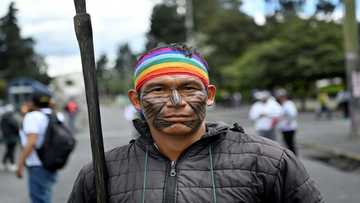
Read also
Indigenous Ecuadorans marched in central Quito Wednesday to call for a restart of negotiations suspended by the government more than two weeks into disruptive and often violent daily protests against rising living costs.
"The hardship has nothing to do with [these[ two [countries]."
Yet another commentator, Eric Osei, felt politicians in Ghana were being deceptive.
"The politicians want us to believe that Russia has attacked Ghana through Ukraine."
General sentiments about Russia's invasion of Ukraine
Generally, only a handful of Ghanaians seem to have formed a strong opinion about the appropriateness or otherwise of Russia's invasion of Ukraine. Although the government of Ghana joined Kenya and Gabon to publicly condemn Russia's actions in a vote cast during an emergency UN security council session on February 25, 2022, citizens seem nonchalant.
For instance, a question on Facebook about whether a country is ever justified to invade another country elicited many jovial comments, although a few came across as informed.
A man who identifies himself as Hon Salman Faris expressed the following view on when one country is justified to invade another country:
"When one country's policies and actions pose danger to the other country, especially its political stability, it can cause invasion."
Another commentator felt that countries that invade another country are merely trying to look tough.
"Don't mind those countries that have been doing that. They just want to be seen as the most powerful country in the world. They just like power," commented @IamEdrino Greatness.
YEN.com.gh took this question to Nathan Gadugah, Dubawa editor for Ghana, Sierra Leone and Liberia. He says that often in international relations permanent interest and power supersedes all other things.
“Under no circumstances must civilians be targeted in a war situation. Article 3 of the 1949 Geneva Conventions prohibits "violence to life and person, in particular murder of all kinds, mutilation, cruel treatment, and torture" when perpetrated against persons "taking no active part in the hostilities.” he added.
Ghanaians on how the war will end
Again although many of the comments poked fun at this question on Facebook, a few felt the war would end after Russia achieved its aim of occupying all of Ukraine.
This view by a Facebooker who identifies as Uchechukwu Okoye resonates with the popular sentiment that Russia may win the war.
"Only Putin can tell how it will end. But I pray it end as soon as possible," another commentator appealed.
William Debrah said the war will end "when the one who unreasonably started it decides he is satisfied with the extent of destruction."
Views on how Ghana can solve the effects of the war
For food vendor Solomon Frimpong, there is nothing Ghana can do since the effect of the war is being felt across the world. He, however, wants the government to cut back on some of its lofty plans.
"Right now the Free SHS is taking a lot of money from this government. It is costing more than Akufo-Addo thought. But I think he should not stop. But the National Cathedral, I don't think it is necessary now," he said.
Solomon's view of the controversial cathedral project is similar to that of many Ghanaians who have commented about the project online.
Also, for petroleum expert and executive director of the Chamber of Petroleum Consumers (COPEC-GH), Duncan Amoah, ending the constant increases in the price of fuel is a critical first step to stabilising the economy. Although crude price volatility on the international market has been blamed for the hikes in fuel, Mr Amoah thinks the tax regime on the commodity worsens the situation.
Mr Amoah told YEN.com.gh in an exclusive interview that the government must review some of the existing taxes on a litre of petrol and diesel to reflect the hardships Ghanaians are faced with.
"It becomes simply difficult to accept, at a time like this, that we continue to charge our people taxes like price stabilisation and Recovery Levy whiles we don't stabilise and recover for anything due to the deregulation programme," he said.
Mr Duncan was referring to the often-criticised 40% tax charged on the cost of a litre of fuel.
Dubawa’s Nathan Gadugah believes that there are some business perspectives for Ghana to take out from the current sanctions against Russia:
“There is an attempt to delve into local production of fertiliser by the government of Ghana. That’s a good start. The government and entrepreneurs must be more strategic and put their monies where their mouths are”.
While Russia's invasion of Ukraine may seem like an isolated case, it has pushed back global recovery from the Covid-19 pandemic. In Ghana, the war has set the citizens against a government that constantly cites the military conflict for economic hardships and put officials on their toes to be more accountable.
New feature: Check out news exactly for YOU ➡️ find "Recommended for you" block and enjoy!
Source: YEN.com.gh


